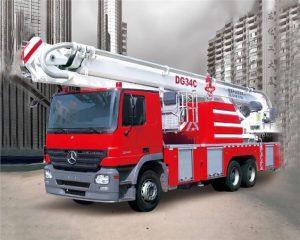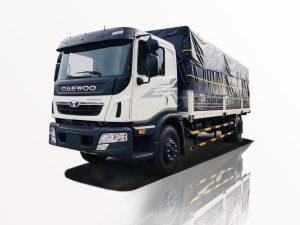Monday to Saturday - 8:00 -17:30
Unlocking Opportunities: Your Guide to Buying a Dumpster Company for Sale
In today’s world, waste management has become an essential service as communities grow and environmental awareness rises. If you’re considering a business venture in this field, finding a dumpster company for sale is an exciting opportunity filled with potential. This comprehensive guide covers everything you need to know about purchasing a dumpster company, including market insights, buying tips, financing options, and more.
Understanding the Dumpster Rental Industry
Current Market Trends
The dumpster rental industry has seen considerable growth due to increasing urbanization, booming construction projects, and a growing emphasis on sustainable waste management practices. Understanding these trends can help you identify a profitable dumpster company for sale.
Types of Dumpster Rental Services
There are various services provided by dumpster rental companies, including:
- Residential dumpster rentals
- Commercial dumpster services
- Construction and demolition waste management
- Specialized services for hazardous waste
Target Markets
Understanding your target demographics can shape your purchasing decision. Common target markets include:
- Homeowners undergoing renovations
- Contractors on construction sites
- Businesses in need of ongoing waste removal
Why Invest in a Dumpster Company?
Stable Demand
With the consistent need for waste disposal, dumpster companies often enjoy stable demand. Whether in a booming economy or downturn, waste management remains a necessity.
Flexible Business Models
Dumpster companies can operate under various models: from rental and pickup services to specialized waste disposal, giving you the flexibility to expand your services wisely.
Potential for Growth
With the right marketing strategies, you can grow the customer base through various channels, including online advertising, community engagement, and partnerships with local businesses.
Key Considerations When Buying a Dumpster Company
Assessing the Company’s Financial Health
Before making a purchase, consider evaluating:
- Revenue trends over the past few years
- Profit margins and operating costs
- Existing customer contracts and relationships
Reviewing Equipment and Assets
Equipment is a significant asset for a dumpster company. Ensure a thorough inspection of:
- Trucks and their maintenance records
- Condition of dumpsters
- Any additional machinery or tools
Understanding Local Regulations
Waste management services are subject to a range of regulations. Before purchasing, familiarize yourself with:
- Licenses and permits required in your locality
- Environmental regulations
- Dumping fees and partnerships with local landfills
How to Find a Dumpster Company for Sale
Online Marketplaces
Websites like BizBuySell, BusinessBroker.net, and LoopNet are popular platforms for finding businesses for sale, including dumpster companies.
Local Business Brokers
Hiring a business broker can streamline your search. They often have insider knowledge and networks to find opportunities not listed publicly.
Networking
Connecting with industry professionals and attending conferences can lead to potential leads and recommendations for dumpster companies for sale.
Inspecting a Potential Purchase
Conducting Due Diligence
Once you identify a company, perform due diligence by:
- Reviewing financial statements
- Assessing customer satisfaction through online reviews
- Interviewing the current owner for operational insights
Negotiating the Terms of Sale
It’s essential to negotiate terms that protect your interests, including:
- Price negotiations based on the company’s financial health
- Contingency clauses to address unforeseen issues
- Transition assistance from the owner for a smooth handover
Financing Your Purchase
Loan Options
Consider different financing options available for business acquisition, including:
- SBA loans: Government-backed loans designed for small businesses
- Traditional bank loans: Great for those with strong credit
- Seller financing: The current owner may allow you to pay a part of the price over time
Investment Partnerships
Seeking investment partners can alleviate the financial burden and provide additional expertise in managing the business.
Marketing Your New Dumpster Company
Building an Online Presence
Establishing a user-friendly website is crucial. Consider integrating:
- Online booking systems
- Customer reviews and testimonials
- Contact information for inquiries
Utilizing SEO and Local Listings
Optimizing your website for search engines and maintaining a presence in local business listings can significantly boost visibility.
Operational Tips for Success
Streamlining Operations
Invest in good software for managing routes, scheduling pickups, and tracking inventory. This can lead to better efficiency and customer satisfaction.
Maintaining Customer Relationships
Building strong relationships is critical for retention. Consider implementing customer loyalty programs and regular follow-ups to enhance satisfaction.
Frequently Asked Questions (FAQ)
1. What should I look for when purchasing a dumpster company?
Focus on the company’s financial health, equipment condition, customer base, and regulatory compliance.
2. How much does it typically cost to buy a dumpster company?
Costs can vary widely, typically ranging from $100,000 to a few million, depending on size, market presence, and assets.
3. Do I need special licenses to operate a dumpster company?
Yes, you will need specific licenses and permits, which vary by state and locality, ideally obtained before starting operations.
4. What are the most effective marketing strategies for a dumpster company?
Focus on online marketing, local SEO, community involvement, and establishing partnerships with contractors and businesses.
5. How do I ensure customer satisfaction in my dumpster business?
Prioritize clear communication, timely service, and regular follow-ups to gather feedback and improve services.
6. What are the environmental considerations for a dumpster company?
Be aware of local waste disposal regulations, explore recycling options, and take steps to minimize the environmental impact of disposal practices.









